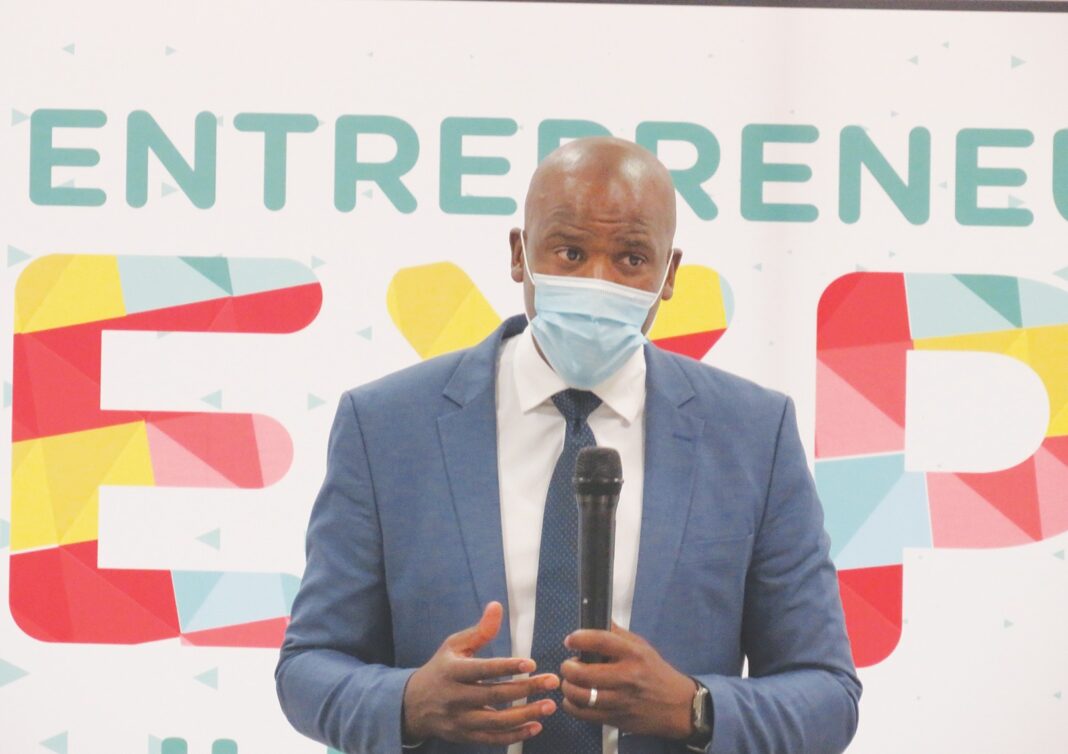By ‘Majirata Latela
Lesotho’s ministry of home affairs has out-rightly warned that men and boys are also preyed on by human traffickers.
In a recent visit to some Lesotho citizens living in South Africa, home affairs minister Motlalentoa Letsosa preached about internal displacement and human trafficking.
He said there are men who voluntarily cross the border to South Africa to work as herd boys. He said these men work for a full month but are not paid their monthly earnings.
“The herd boy will continue to work for another month. The employer will for three consecutive months make excuses for not paying the salary while promising the worker to triple the salary. On the day when the herd boy is supposed to get the three months’ salary, the police will surprisingly arrive and arrest the shepherd for being an illegal migrant. At this point the herd boy will be arrested and be charged for being an illegal immigrant.
“On the other instance there are men who are recruited to work illegally on closed mining shafts. Most of these men go voluntarily to work underground but when they get there they find that they have to share their proceeds with the syndicate leaders, who often promise security for them while working underground,
“Nowadays it’s not only women who get trafficked. Anyone who moves someone with a promise to pay them for a certain job and ends up exploiting that person is one way or the other practicing trafficking and faces jail if found guilty by the courts of law,” Letsosa said.
He said some men and boys are being trafficked to work as illegal miners in South Africa while others work as herders of livestock without work permits.
A report by the United Nations Office on Drugs and Crime in 2012 estimated that men accounted for 25 percent of trafficking victims globally.
Further, the Global Report on Trafficking in Persons estimated that 27 percent of all victims detected globally were children and that of those, one in three victims were boys.
According to United Nations office on Drugs and Crime (UNODC) human trafficking is a global problem and one of the world’s most shameful crimes, affecting the lives of millions of people around the world and robbing them of their dignity.
Traffickers deceive women, men and children from all corners of the world and force them into exploitative situations.
While the best-known form of human trafficking is for the purpose of sexual exploitation, hundreds of thousands of victims are trafficked for the purposes of forced labour, domestic servitude, child begging or the removal of their organs.
UNODC says nearly every country in the world is affected by human trafficking, as a point of origin, transit or destination, and victims from at least 127 countries have been reported to have been exploited in 137 states
Facts from UNODC show that the most common form of human trafficking detected by international authorities is trafficking for the purpose of sexual exploitation. In 2006, this form accounted for an estimated 79 per cent of all cases globally. The remaining 21 per cent of victims were thought to be trafficked for the purpose of forced labour or other forms of exploitation.
The 2019 Trafficking in Persons Report on Lesotho says for the past five years, human traffickers exploit domestic and foreign victims
In Lesotho, traffickers exploit Basotho children in domestic servitude and animal herding. Some traffickers increasingly exploit children, especially orphans, who migrate to urban areas.
The report continues to show that traffickers exploit some Basotho men who migrate voluntarily, although illegally and often without identity documents, to South Africa for work in agriculture and mining in forced labour.
These men are said to work for weeks or months before their employers turn them over to South African authorities for deportation on immigration law violations to avoid paying them.
On the other hand, traffickers connected to organised crime syndicates operating in South Africa exploit and sometimes kill Basotho men by depriving victims of oxygen in derelict mines. Traffickers also compel Basotho into committing crimes in South Africa, including theft, drug smuggling under threat of violence or through forced drug use. Foreign nationals, including Chinese, subject their compatriots to sex trafficking in Lesotho.
In the August 2021 the weekly reported that Lesotho is crossing its fingers that it will be upgraded to Tier One on the watch list soon after showing signs of rooting out human trafficking through its ministry of home affairs.
In July this year the country was upgraded to Tier Two in the 2021 Trafficking in Persons Report for taking concrete measures to eliminate trafficking even though the country did not meet the minimum standard to that status.
But the ministry leading the exercise of eliminating human trafficking is optimistic the kingdom will be further upgraded to the higher level in a very short period of time.









